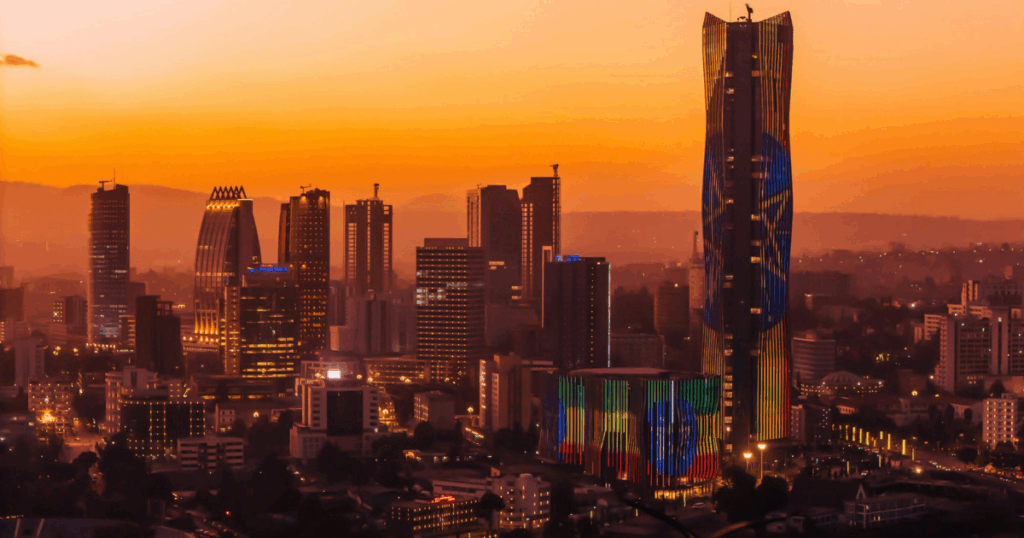Doing business in Nigeria
- How quickly can I set up a business?
- What is the minimum investment needed?
- How can I raise finance?
- What are the legal requirements for setting up my business?
- What structure should I consider?
- What advice can you give me in regards to payroll and taxation requirements?
- Is there anything else that I should know?
How quickly can I set up a business?
The timeframe for business registration in Nigeria varies depending on the type of structure to be set up. Generally, registering a business in Nigeria is quite easy and requires the following steps:
– Name Availability Search at the Corporate Affairs Commission (CAC)
– Reservation of Approved Name.
– Completion of statutory forms.
– Payment of filing fees, currently at 0.5% of share capital
– Payment of stamp duty, at 0.75% of share capital
– Submission of the application alongside evidence of payments.
– Upon approval by CAC, the certificate of registration and the status report can be downloaded via the website below.
The average timeframe for business registration in Nigeria is 3-5 working days.
Please visit www.cac.gov.ng for more information.
What is the minimum investment needed?
A private company limited by shares (LTD) must have a minimum issued share capital of ₦100,000, while a publicly quoted company (PLC) is required to have a minimum issued share capital of ₦2,000,000 with all shares being issued.
However, in the case of companies with foreign participation, the minimum share capital required is ₦100,000,000 in view of the requirement to obtain a Business Permit from the Ministry of Interior.
Please be aware that specific industries may have prescribed minimum share capital requirements.
How can I raise finance?
In Nigeria, numerous methods are available for financing a business. These represent the most frequently employed approaches for securing funds:
1. Personal Savings: Using owner’s personal savings is one of the most common ways to fund a startup.
2. Angel Investors: Seeking out wealthy individuals who are interested in investing in startups is also quite common. Angel investors often provide not only capital but valuable advice and contacts.
3. Venture Capital: While venture capital is more common in tech startups, it’s still a viable option in other sectors especially where it involves a high-growth business idea.
4. Bank Loans: Nigerian banks offer various loan schemes for small and medium-sized enterprises (SMEs). These loans may or may not require collateral or guarantees, depending on a number of factors to be determined by the bank.
5. Grants: Organisations and governments sometimes offer these to encourage entrepreneurship.
6. Private Equity Firms: These may also offer some funding in case of businesses with significant growth potential.
Each method has its pros and cons. Your choice will depend on factors like your business model, growth potential, risk tolerance, and personal circumstances.
There are many sectors that attract investments in Nigeria such as the Real Estate Sector, Agriculture Sector, Manufacturing Sector, Technology and Software, Transport sector and many more.
What are the legal requirements for setting up my business?
There are different business structures available to register in Nigeria namely:
– Business Name
– Private liability company limited by shares
– Public liability company limited by shares
– Private liability company limited by guarantee
– Limited Partnership
– Limited Liability Partnership
– Incorporated Trustees
The preferred structure typically depends on the nature and/or size of the business to be set up.
What structure should I consider?
In Nigeria, the most popular structures are the Business Name and the Private Company Limited by Shares. However, it is recommended that a professional be contacted to properly advise on the most suitable option and its attendant requirements.
What advice can you give me in regards to payroll and taxation requirements?
Locations and Climate:
Nigeria is located in West Africa, spanning from approximately 4° North to 14° North latitude. Its northernmost point borders Niger, and the southernmost point meets the Atlantic Ocean. The country extends from about 3° East to 15° East longitude, with the easternmost point bordering Cameroon and the westernmost point bordering Benin. Known as the “Giant of Africa,” Nigeria covers around 923,768 square kilometres and boasts diverse climates:
– Equatorial Climate: Southern coastal regions with high temperatures and ample rainfall.
– Tropical Savannah Climate: Extending northward from the coast, characterised by wet and dry seasons.
– Semi-Arid and Arid Climate: Found in the far north, featuring hot, dry conditions with limited rainfall.
Payroll and HR Requirements:
Nigeria’s employment landscape is governed by the Nigerian Labour Act, covering employment contracts, conditions, rights, and dispute resolution. Key provisions include:
– Providing written employment contracts within three months of hire.
– Specifying terms such as wages, working hours, leave, and termination procedures.
– Regulating conditions of service, overtime pay, rest days, and leave policies.
– Mandatory wage payments in legal tender at regular intervals.
Tax Regulatory/Reporting:
Nigeria’s tax system is decentralised across federal, state, and local government levels, managed by different bodies:
– Federal Inland Revenue Service (FIRS) administers federal taxes.
– State boards of internal revenue handle state taxes.
– Local government revenue committees oversee local taxes.
Major taxes include:
– Company Income Tax (CIT) rates: 0% for small companies, 20% for medium-sized companies, and 30% for large companies.
– Value Added Tax (VAT): 7.5% on goods and services.
– Education Tax: 3% of assessable profit.
– National Information Technology Development Levy: 1% of profit before tax for companies in specific sectors
Other taxes such as Hydrocarbon Tax, Capital Gains Tax and Stamp Duties apply based on business activities.
Is there anything else that I should know?
In addition to the mandatory company registration processes with the Corporate Affairs Commission (CAC) and Federal Inland Revenue Service (FIRS), foreign entities aiming to establish a presence in Nigeria must adhere to a comprehensive set of regulatory requirements.
It is mandatory that companies with foreign participation register with the Nigerian Investment Promotion Commission (NIPC). This registration is pivotal as it not only facilitates the acquisition of a business permit but also serves as a means to secure expatriate quota positions and various incentives. To initiate business operations, foreign investors must import capital through an authorised dealer, typically an approved bank. Subsequently, they are required to obtain a certificate of capital importation issued by the Central Bank of Nigeria (CBN).
Beyond these financial and regulatory aspects, it is imperative for foreign nationals to secure permission to work and reside in Nigeria. Tourist or business visas, suitable only for initial entry, do not suffice for employment. Companies looking to hire foreign employees must pursue Expatriate Quota Approvals, a prerequisite for obtaining a Subject to Regularisation Visa from a Nigerian consulate abroad. Once in Nigeria, expatriates must formalise their residency and work status by applying for a Combined Expatriate Residence Permit and Aliens Card (CERPAC) within three months of arrival.
For eligible industries and products, Pioneer status incentives can be granted, offering a tax exemption for an initial three-year period, with possible extensions contingent upon meeting specific conditions.
Please note that to counteract the financing of terrorism and the proliferation of weapons of mass destruction, certain companies are mandated to register with the Special Control Unit against Money Laundering (SCUML), a department under the Economic and Financial Crimes Commission (EFCC). This registration process ensures compliance with the Money Laundering (Prevention& Prohibition) Act, 2022, and is essential for Designated Non-Financial Businesses and Professions (DNFBPs).
Our firms in Nigeria
How can Kreston grow your business?
Select your business type:
Latest news
Mid-market outlook in Africa
The sixth, and final edition of Going Global is now available, spotlighting the mid-market outlook in Africa.

New Ethiopian internship and entrepreneurship programmes
TAY Audit Service LLP in Ethiopia launch new Ethiopian internship and entrepreneurship programmes that hope to engage this generation.

Angola airport; a new gateway for Africa
Angola Airport is set to become a major African air hub, driving trade, investment, and economic growth across Angola and the wider region.

